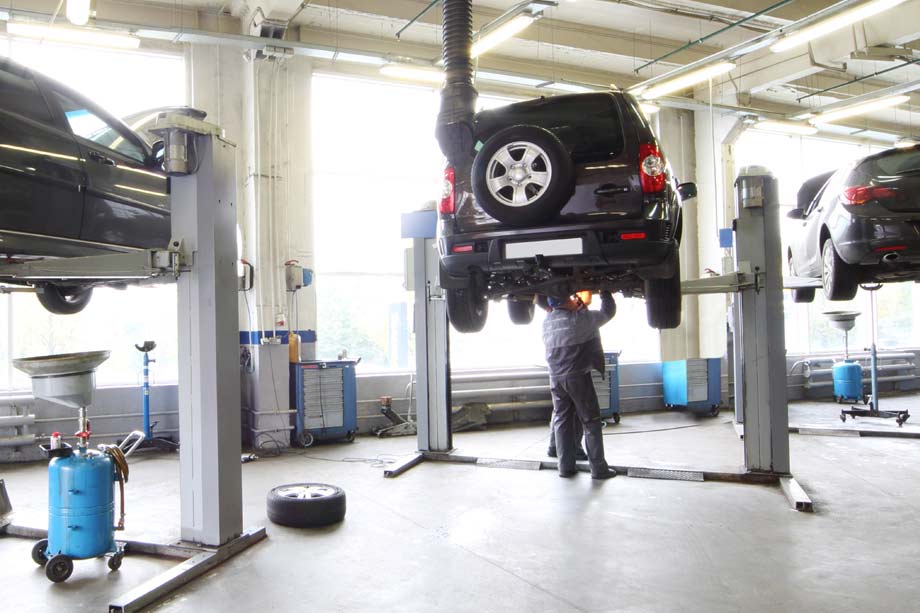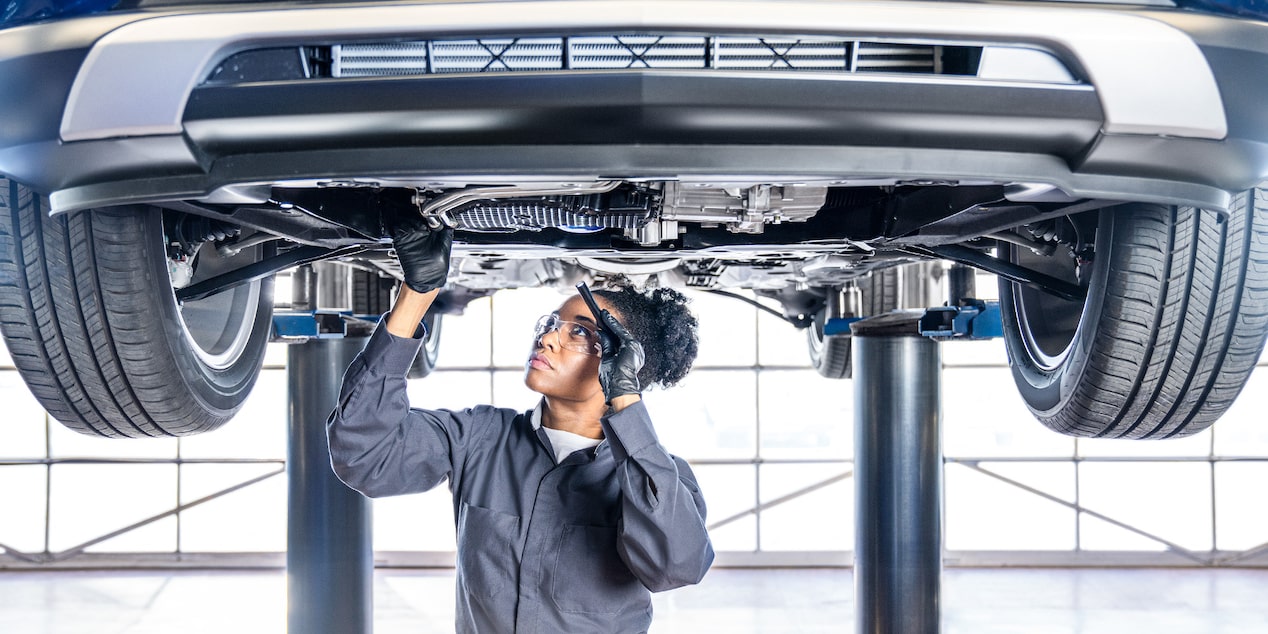Featured
The timing belt is an important element of your engine, responsible for synchronizing the movement of different engine parts, such as the crankshaft and camshaft. This ensures the engine's valves close and open at the correct times throughout the burning cycle. While the timing belt might not be something you consider commonly, neglecting its maintenance can lead to substantial engine damage and costly repairs. Below's why timing belt replacement is necessary for your vehicle's longevity and efficiency.
What Is a Timing Belt and How Does It Work? The timing belt is a rubber or composite material belt that attaches the crankshaft to the camshaft in an interior burning engine. The camshaft manages the opening and closing of the engine's consumption and exhaust shutoffs, and it needs to be timed flawlessly with the motion of the pistons in the engine. The timing belt guarantees that these components remain in sync, permitting the engine to run smoothly.
If the timing belt fails or becomes worn out, the camshaft and crankshaft will certainly no much longer be synchronized, which can create the engine's shutoffs to strike the pistons. This brings about devastating engine damage and commonly calls for pricey repair work or perhaps an engine substitute.
Why Is Timing Belt Substitute Important? Gradually, the timing belt can put on down as a result of friction, warmth, and general engine wear. While it may feel like a little issue, a damaged timing belt can bring about severe engine troubles. Right here's why timely substitute is important:
Stopping Engine Damages: As pointed out, a busted or sliding timing belt can cause the engine's pistons and valves to collide. This results in curved shutoffs, damaged pistons, and in serious situations, a complete engine failing. Replacing the timing belt prior to it damages can prevent this pricey damage.
Maintaining Engine Efficiency: A damaged timing belt can disrupt the synchronization of the engine components, minimizing general engine efficiency. Replacing the belt helps keep optimum engine feature, ensuring smooth operation, boosted fuel efficiency, and much better efficiency.
Preventing Unexpected Breakdown: A busted timing belt can leave you stranded on the side of the roadway, creating a significant inconvenience. By replacing the timing belt at the recommended periods, you can avoid the danger of an unexpected failure, specifically in the middle of a long trip or when you least expect it.
![]()
Saving Cash in the Lengthy Run: While timing belt substitute can appear like an expense you might intend to avoid, it's much more affordable than the cost of fixing or replacing a damaged engine. The replacement price is fairly inexpensive contrasted to the comprehensive repair work required if the timing belt breaks. Proactive upkeep can save you thousands of bucks out of commission and maintain your automobile's value.
When Should You Replace the Timing Belt? The timing belt substitute schedule can differ relying on your vehicle's make and model. Generally, most manufacturers advise replacing the timing belt every 60,000 to 100,000 miles. However, it's always best to consult your proprietor's guidebook or a trusted auto mechanic for particular suggestions for your car.
Indications that your timing belt may require replacement include unusual engine noises such as yawping or ticking, difficulty beginning the engine, or an obvious reduction in engine performance. If you experience any one of these symptoms, it's important to have the timing belt examined promptly.
![]()
Final thought. Changing the timing belt at the recommended periods is a crucial component of maintaining your engine's wellness and making certain that your vehicle runs efficiently. A damaged timing belt can lead to pricey repairs, engine failure, and unexpected malfunctions, which can be prevented with correct upkeep.
What Is a Timing Belt and How Does It Work? The timing belt is a rubber or composite material belt that attaches the crankshaft to the camshaft in an interior burning engine. The camshaft manages the opening and closing of the engine's consumption and exhaust shutoffs, and it needs to be timed flawlessly with the motion of the pistons in the engine. The timing belt guarantees that these components remain in sync, permitting the engine to run smoothly.
If the timing belt fails or becomes worn out, the camshaft and crankshaft will certainly no much longer be synchronized, which can create the engine's shutoffs to strike the pistons. This brings about devastating engine damage and commonly calls for pricey repair work or perhaps an engine substitute.
Why Is Timing Belt Substitute Important? Gradually, the timing belt can put on down as a result of friction, warmth, and general engine wear. While it may feel like a little issue, a damaged timing belt can bring about severe engine troubles. Right here's why timely substitute is important:
Stopping Engine Damages: As pointed out, a busted or sliding timing belt can cause the engine's pistons and valves to collide. This results in curved shutoffs, damaged pistons, and in serious situations, a complete engine failing. Replacing the timing belt prior to it damages can prevent this pricey damage.
Maintaining Engine Efficiency: A damaged timing belt can disrupt the synchronization of the engine components, minimizing general engine efficiency. Replacing the belt helps keep optimum engine feature, ensuring smooth operation, boosted fuel efficiency, and much better efficiency.
Preventing Unexpected Breakdown: A busted timing belt can leave you stranded on the side of the roadway, creating a significant inconvenience. By replacing the timing belt at the recommended periods, you can avoid the danger of an unexpected failure, specifically in the middle of a long trip or when you least expect it.

Saving Cash in the Lengthy Run: While timing belt substitute can appear like an expense you might intend to avoid, it's much more affordable than the cost of fixing or replacing a damaged engine. The replacement price is fairly inexpensive contrasted to the comprehensive repair work required if the timing belt breaks. Proactive upkeep can save you thousands of bucks out of commission and maintain your automobile's value.
When Should You Replace the Timing Belt? The timing belt substitute schedule can differ relying on your vehicle's make and model. Generally, most manufacturers advise replacing the timing belt every 60,000 to 100,000 miles. However, it's always best to consult your proprietor's guidebook or a trusted auto mechanic for particular suggestions for your car.
Indications that your timing belt may require replacement include unusual engine noises such as yawping or ticking, difficulty beginning the engine, or an obvious reduction in engine performance. If you experience any one of these symptoms, it's important to have the timing belt examined promptly.

Final thought. Changing the timing belt at the recommended periods is a crucial component of maintaining your engine's wellness and making certain that your vehicle runs efficiently. A damaged timing belt can lead to pricey repairs, engine failure, and unexpected malfunctions, which can be prevented with correct upkeep.
Latest Posts
Products Custom Entry Gates
Published Jan 08, 25
0 min read
Personalized Gates Trends
Published Jan 08, 25
0 min read
Understanding the Relevance of Timing Belt Replacement for Your Engine
Published Jan 07, 25
0 min read